A New House of Commons System may Better Fulfil Participation of the British Public
- n1051989
- Sep 9, 2022
- 1 min read
Disclaimer: This article is personal opinion. There is beauty in disagreement. This is an option towards change. It is not a demand for an entire overhaul.

What is social justice?
Social justice is the fair distribution between all members of society. This includes:
1. Equal access to resources.
Each British citizen should have equal access to resources, such as education, to allow everyone to have an equal start in life.
2. Equity.
Equity involves trying to sympathise with others and diagnose what they need for future fulfilment of their lives.
3. Participation.
Each British citizen should be allowed to voice their concerns.
4. Diversity.
Diversity is an understanding that collaboration between individuals of different backgrounds is important.
5. Human rights.
Each individual is entitled to be protected under the Universal Declaration of Human Rights.
How does the House of Commons work?

1. Campaign.
Individuals campaign for a seat in the House of Commons to represent their local constituency.
2. The political party with the most Parliament seats becomes Britain's political party for the next five years.
Those not in the elected political party form the opposition. A speaker manages the debate between party and opposition.
3. The prime minister can choose a Cabinet of 20 individuals.
Cabinet manages each Government department, including the Department for Education.
4. The House of Commons debates issues, such as education.
Members of Parliament can share comments raised by their constituents (local residents).
Are four candidates enough?
The information below suggests that on average (mean and mode value), four or five candidates run for each seat in Parliament. There may not be enough choice because:
1. Value-flexibility is limited.
There may not be an individual who reflects values that the community needs. Candidates' values are bound within the overall standpoint of a political party, unless independent.
2. Independence is not embraced enough.
Independent parties have generally not been popular enough to trigger social change. This has resulted in either a Conservative or Labour government. More independent/'mix-and-match' values may better represent the wider public opinion. Some individuals may be left-wing (~ Labour) for some issues and right-wing (~ Conservative) for others.
City Council | Local election year (most recently published data online) | Average number of candidates running for borough election (mode value) | Average number of candidates running for borough election (mean value) | Number of boroughs | Average amount of candidates per city (Mode x number of boroughs) | |
2017 | 4.00 | 4.32 (3s.f.) | 53.00 | 212 or about 1 in 2400 people | 508,916.00 | |
Varying 2017-2021 | 5.00 | 5.29 (3s.f.) | 7.00 | 35 or about 1 in 9186 people | 321,500.00 | |
2022 | 4.00 | 5.47 (3s.f.) | 69.00 | 276 or about 1 in 3566 people | 984,333.00 | |
2022 | 5.00 | 4.71 (3s.f.) | 17.00 | 85 or about 1 in 3182 people | 270,468.00 | |
2022 | 4.00 | 4.15 (3s.f) | 32.00 | 128 or about 1 in 3090 people | 395,515.00 | |
2022 | 5.00 | 4.90 (3s.f.) | 88.00 | 440 or about 1 in 1558 people | 685,368.00 |
Why might mix-and-match values improve social justice?
Scrapping the constraints of political parties would allow a greater diversity of opinions. If there is a popular or shared value, it may still have a greater influence in decision-making, without the need to be assigned to a 'Conservative opinion', for example.
Introducing: a new system to improve social justice of the British public

1. All individuals that campaign can become members of Parliament, regardless of their political party.
Candidates must have some expertise in the department they choose.
2. Scrap Cabinet.
Per department, have a 'star chart' where the top ten members (objectively making positive change) are publicly displayed. The chart could be updated monthly, for example.
3. The Prime Minister should be the highest 'star' contributor across Government departments.
The Prime Minister's contributions could be reviewed on a quarterly, bi-annually and yearly basis. The recommended minimum running for a prime minister is one year.
4. The House of Commons will debate issues on a weekly (live) online basis.
Hold a weekly debate for each department, such as the Department for Education.
Advertise the debate on television, radio and social media for equal access to resources and participation.
The platform will respond to questions submitted live.
Any questions not answered within a set time frame will be responded to in written format and published online.
Candidates who have applied to be members of Parliament can act as an 'expert'. Candidates can provide extra context to a local resident's question if required.
5. Introduce an explicitly advertised debate-feedback system.
Once Government publishes a report, the public may appeal. Any individuals with experience in the department area are encouraged to contribute, for example teachers and the Department for Education.
Exemplar live interface
How may this system to improve social justice?
1. Equal access to resources.
An online forum would allow a wider diversity of individuals to access Government discussion and updates.
2. Equity.
Public feedback for Government decisions would act as a test, to reflect if their decisions have been successful. If not, Government has a chance to rediagnose and treat the decision.
3. Participation.
Each British citizen is encouraged to debate from home.
4. Diversity.
An online forum would allow a wider range of individuals. Government decisions may be more informed, thus.
5. Human rights.
This system may benefit 'right to freedom of opinion and expression' (article 19 of the Human Rights Declaration).
Concluding Statements
Scrap the strict job role of a member of Parliament.
Reverse the formality and 'popularity-contest' for political parties.
Move Parliament debates fully online.
Per Government department, pursue more high-quality decisions by collaborating with a diverse range of individuals.
All Government decisions and iterations of those decisions should be explicitly advertised on all platforms, aiming to be accessible to all.

Open access to information. Explicit diagnosis of needs. Public collaboration. An online freedom of expression. This is the future.

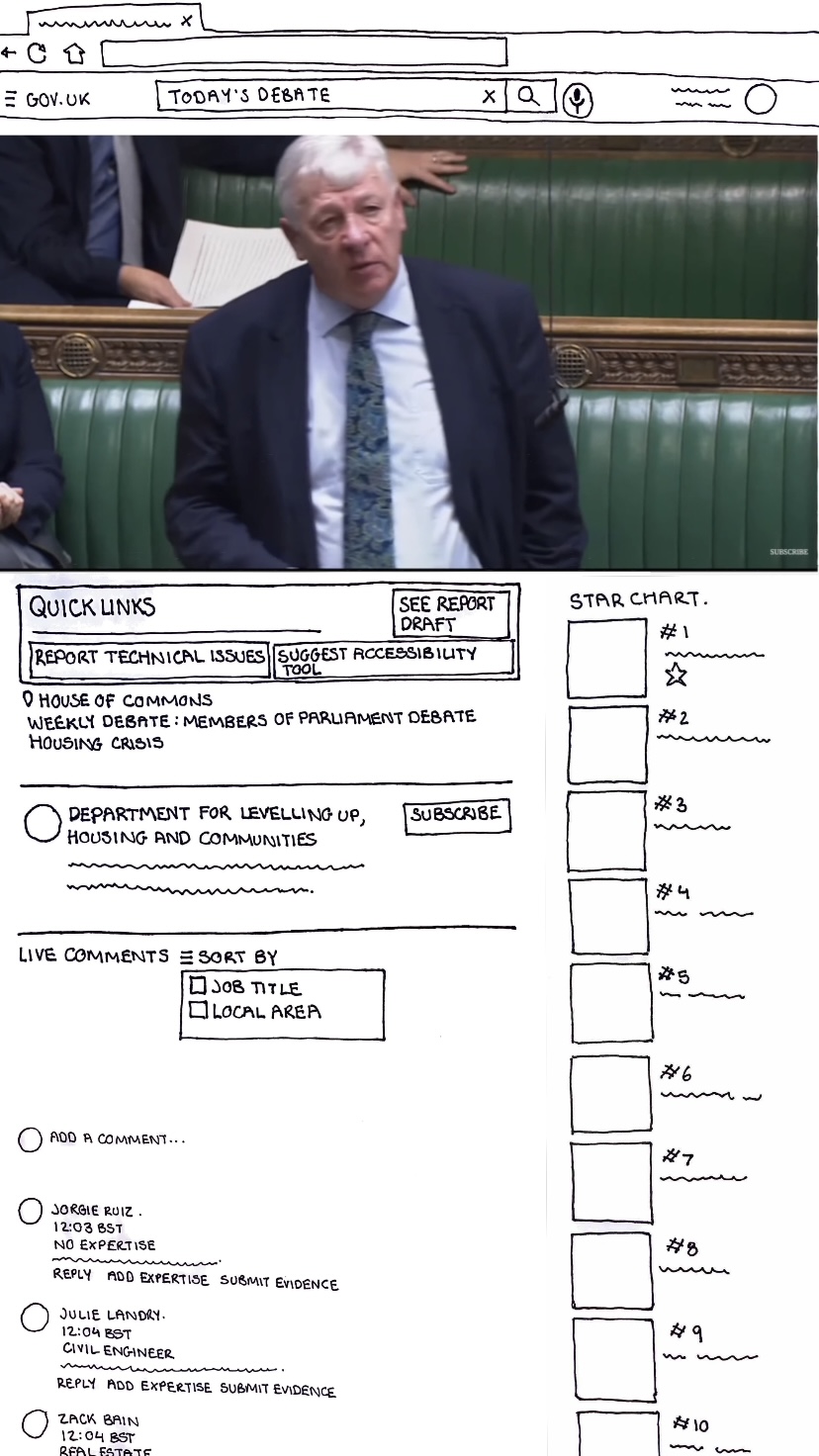

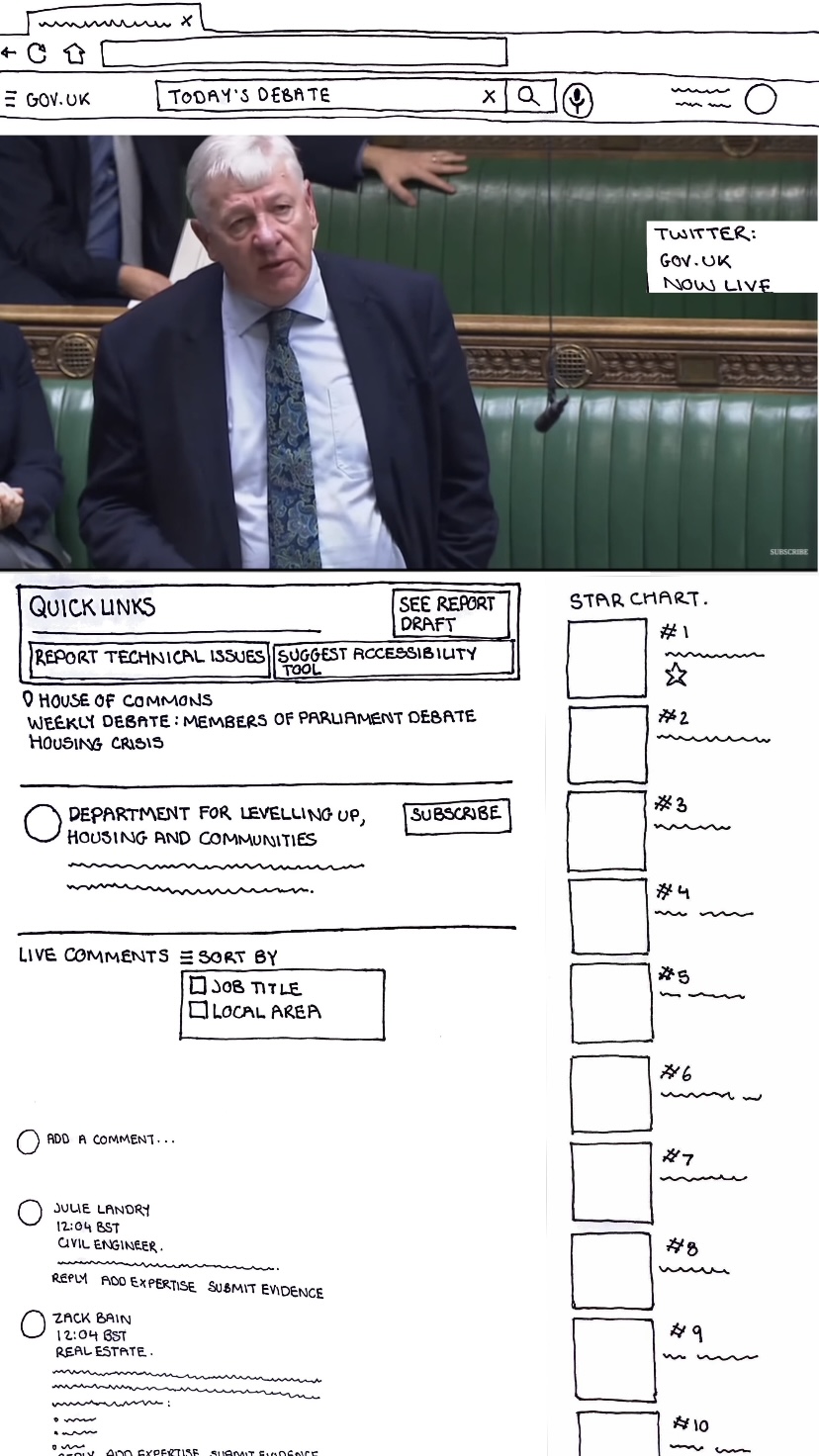

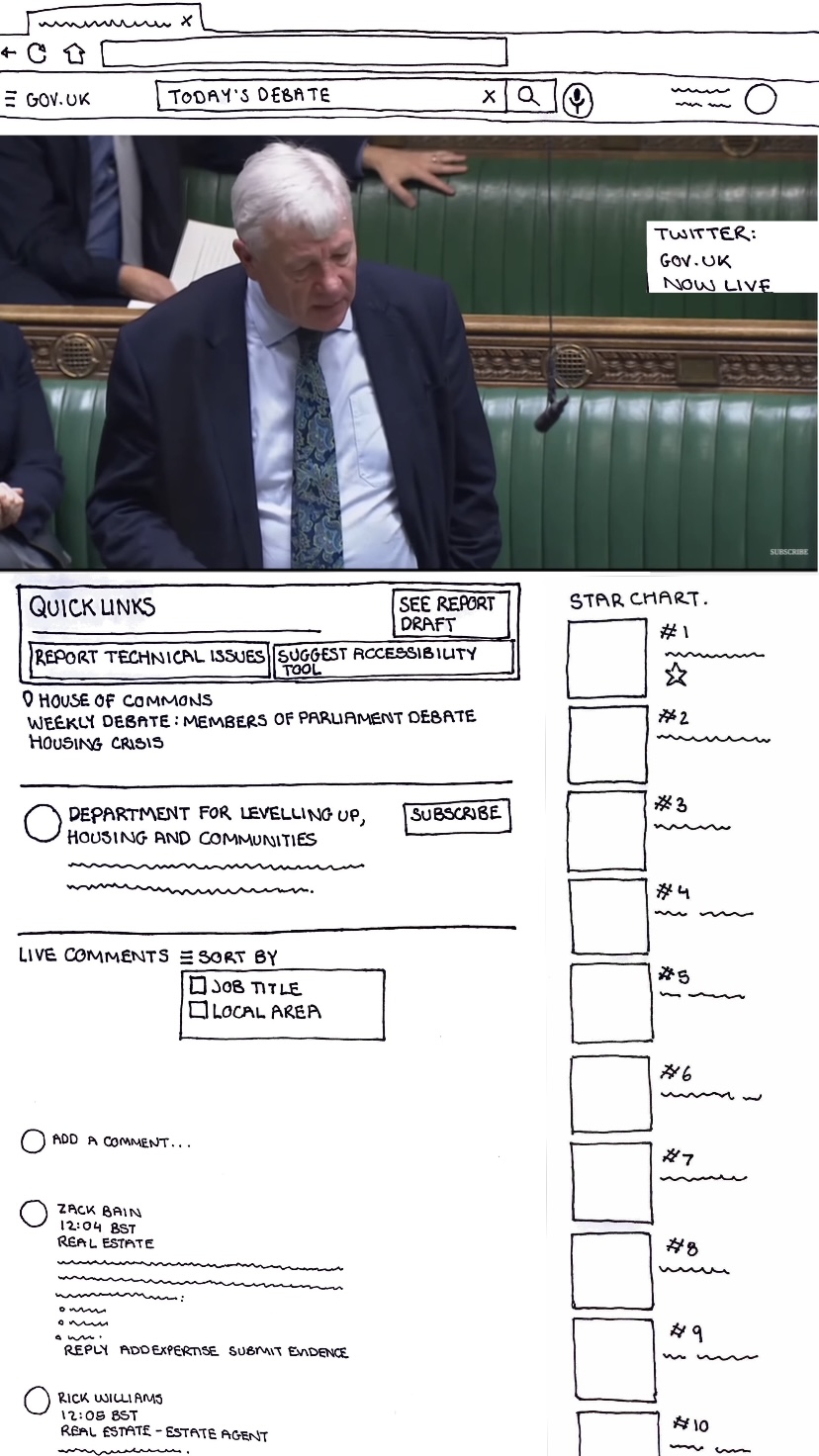

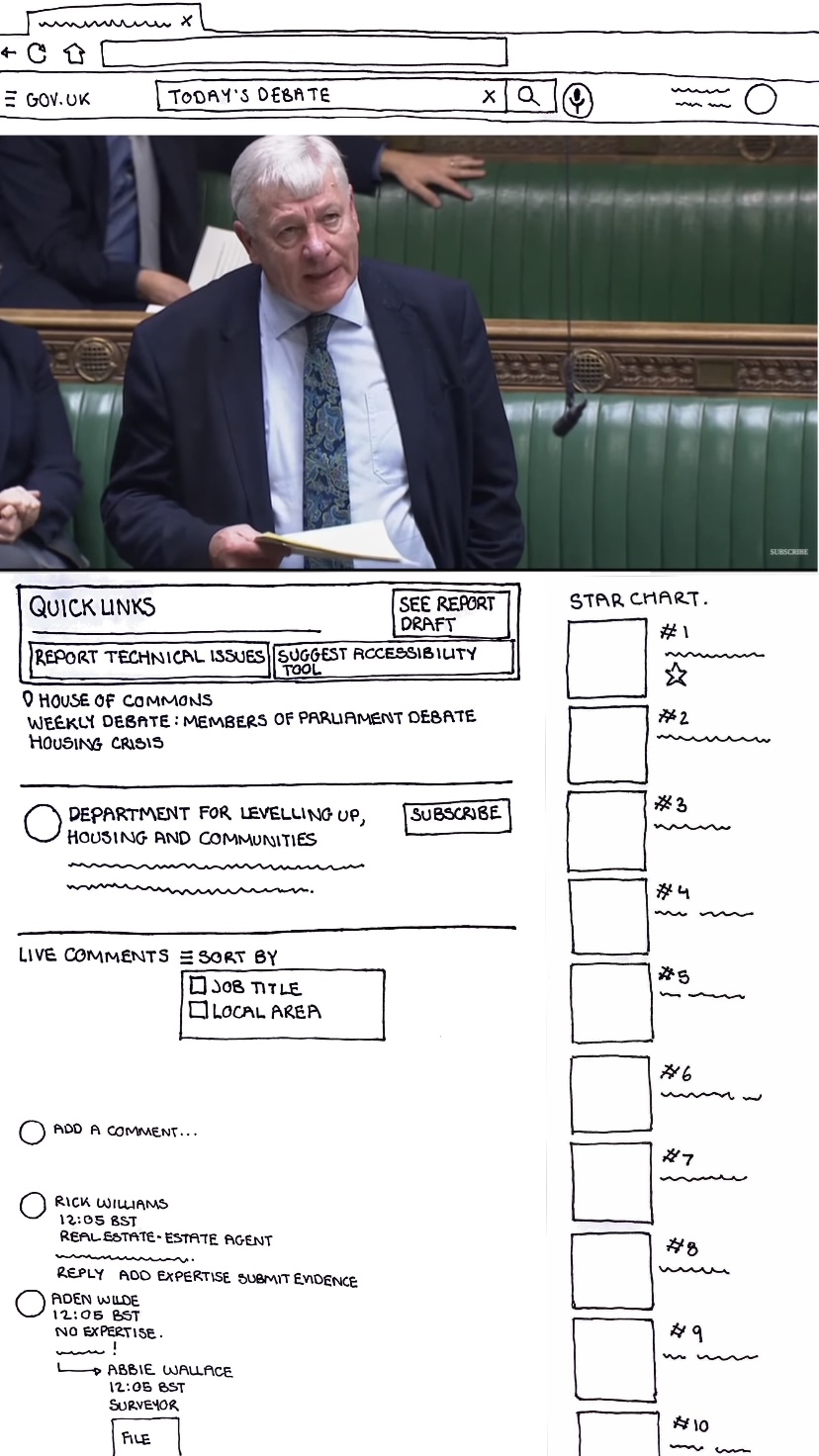

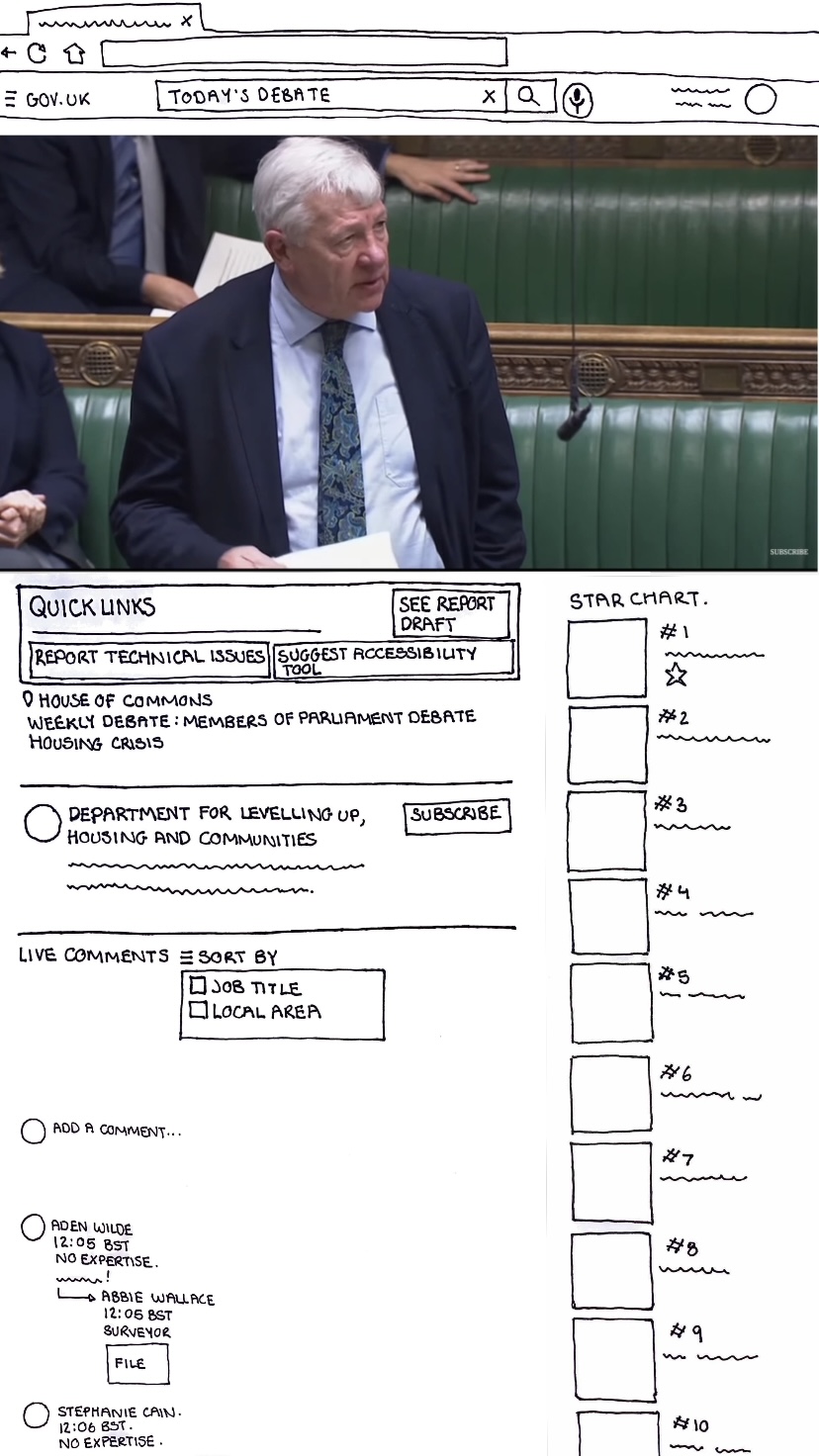
Comentarios